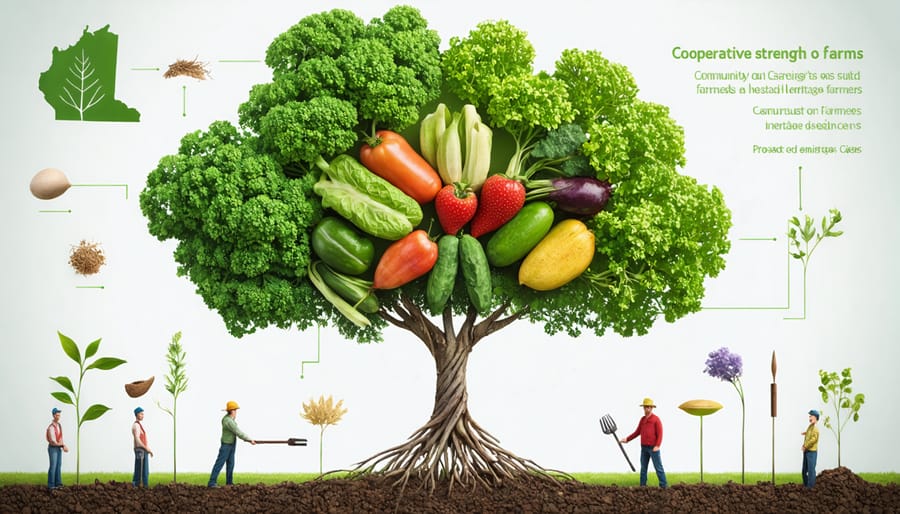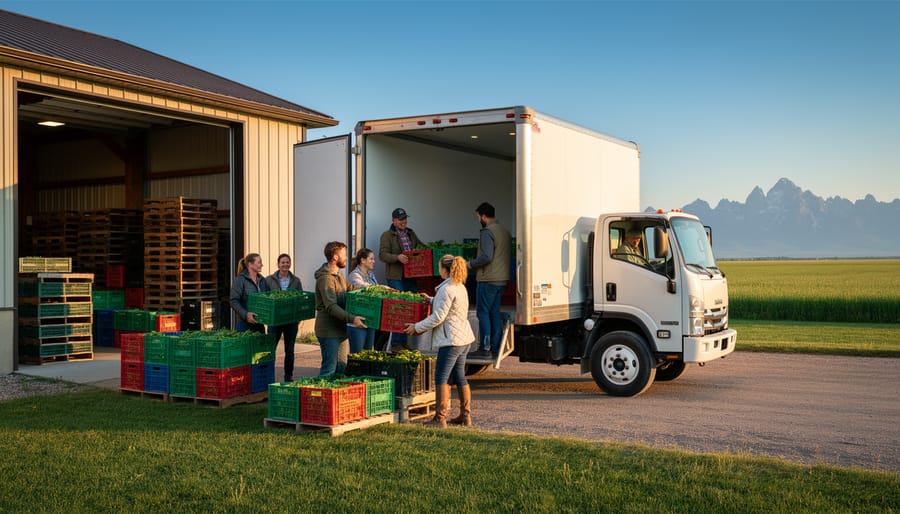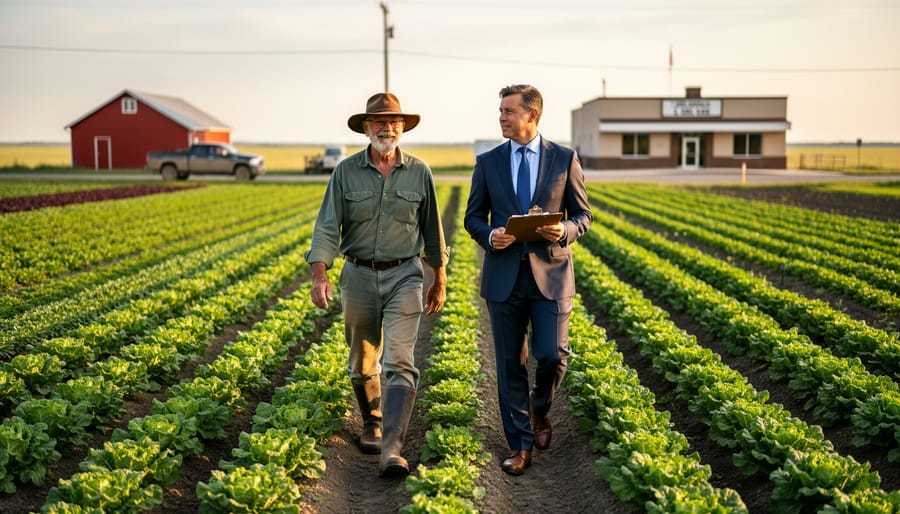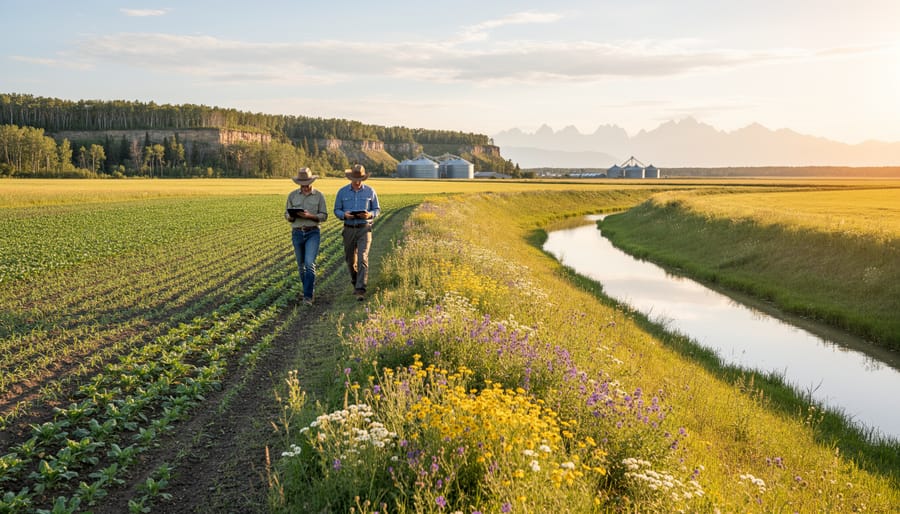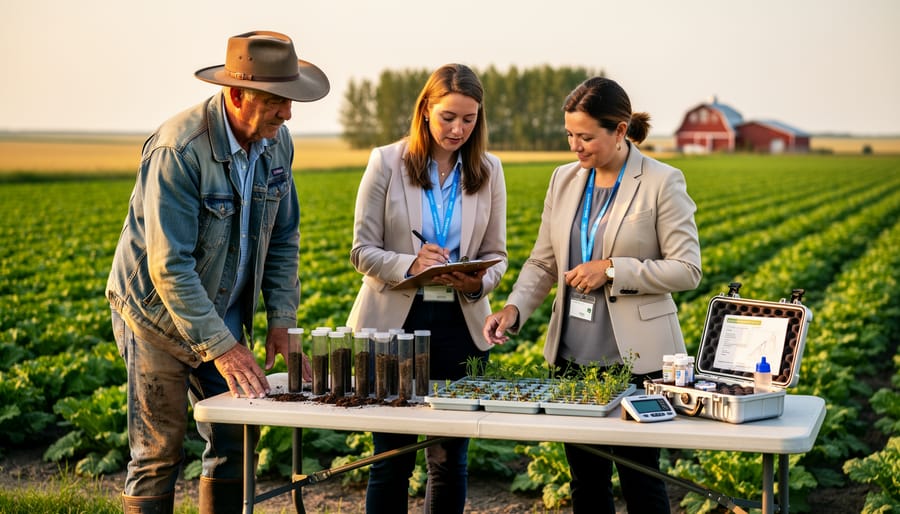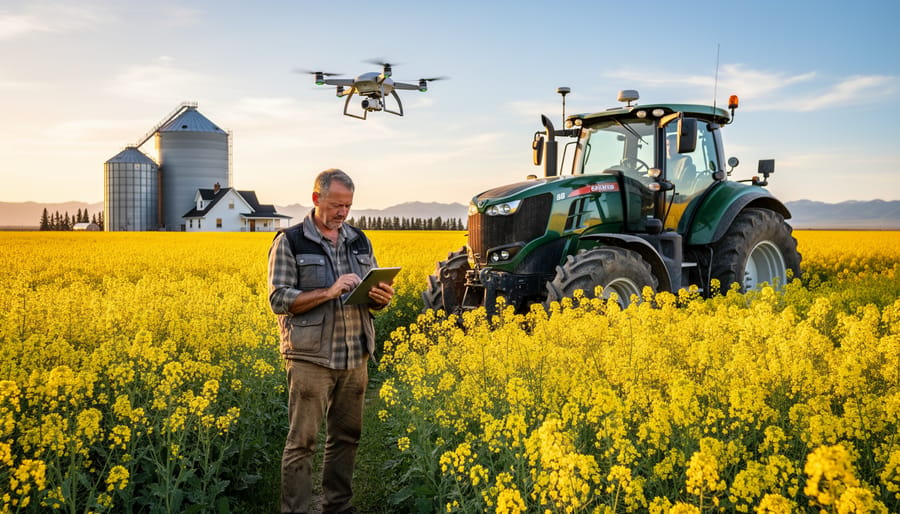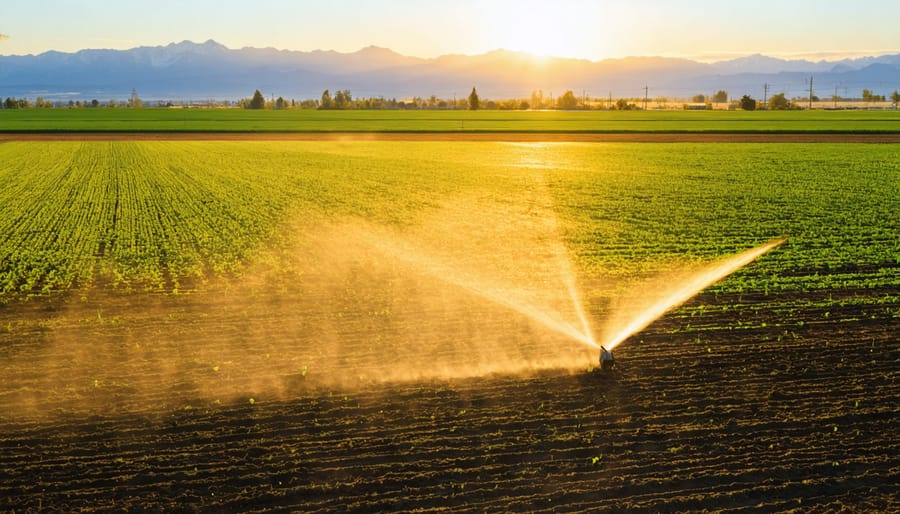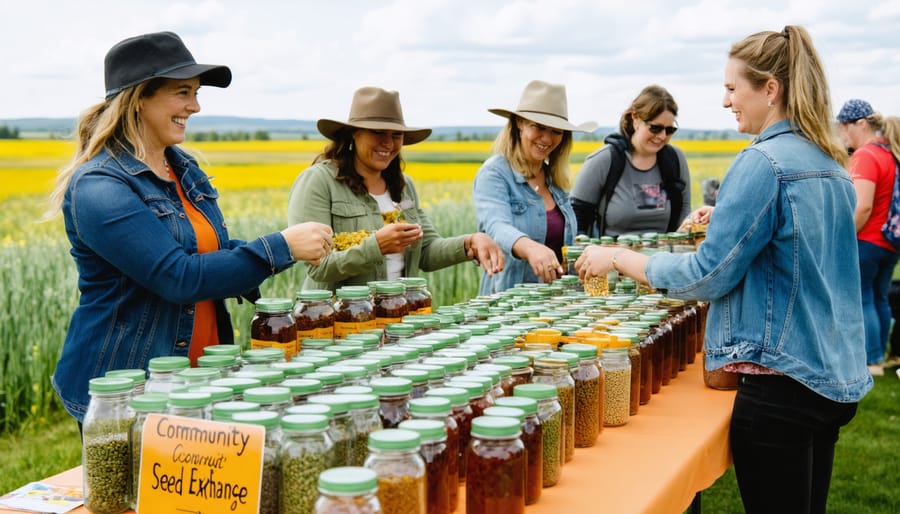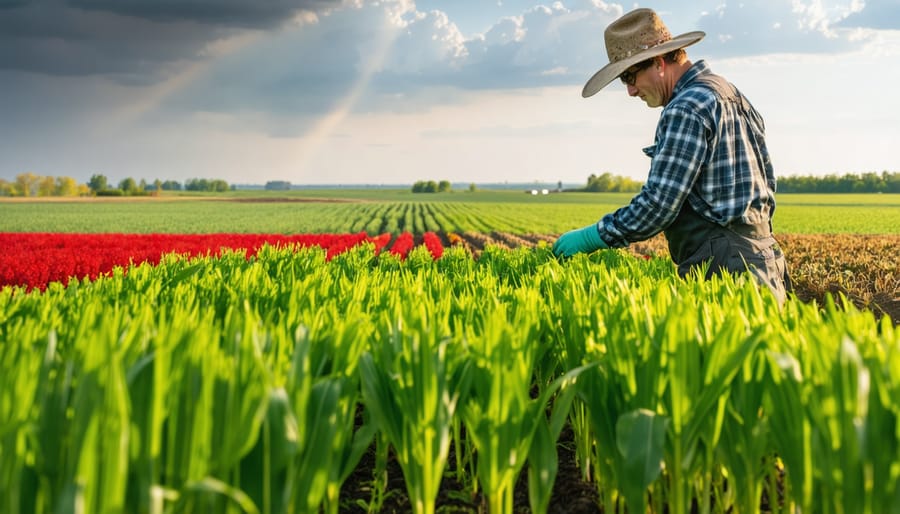In the heart of Alberta’s farming communities, cooperative principles aren’t just guidelines—they’re the bedrock of successful seed sharing networks that have sustained generations of Canadian farmers. These seven fundamental principles—voluntary membership, democratic control, economic participation, autonomy, education, cooperation among cooperatives, and community concern—transform individual farms into resilient agricultural communities.
From Peace Country to Southern Alberta, farmers are leveraging these principles to build seed libraries, establish community seed banks, and preserve heritage varieties that define our agricultural identity. Through democratic decision-making and shared economic responsibility, local seed-saving initiatives have already preserved over 250 heritage crop varieties uniquely adapted to Canadian growing conditions.
The power of cooperative principles extends beyond mere seed preservation. These guidelines create sustainable agricultural systems where knowledge, resources, and risks are shared collectively. As climate challenges intensify and global seed diversity diminishes, Alberta’s farming communities demonstrate how cooperative approaches strengthen food security while maintaining local agricultural traditions.
Whether you’re a multi-generational farmer or new to agriculture, understanding and implementing these principles can transform isolated farming operations into connected, resilient networks of mutual support and sustainable growth.
The Power of Democratic Member Control in Seed Preservation
Alberta’s Seed Democracy in Action
Alberta’s seed-saving initiatives showcase democratic principles in action, demonstrating how grassroots initiatives in Alberta can create lasting change. The Seeds of Diversity Alberta Network, comprising over 200 local farmers, exemplifies cooperative democracy through its member-driven seed preservation programs.
Every year, network members participate in seasonal planning meetings where they collectively decide which heritage varieties to preserve and share. Each farmer gets one vote, regardless of farm size, ensuring equal representation in decision-making processes. This democratic approach has led to the preservation of over 50 locally-adapted crop varieties, including hardy wheat strains and heritage vegetables uniquely suited to Alberta’s climate.
The initiative’s success stems from its transparent governance structure, where rotating leadership positions ensure fresh perspectives and shared responsibilities. Members actively participate in seed selection committees, education programs, and distribution planning, creating a truly collaborative environment where every voice matters.
This democratic model has proven particularly effective in preserving Indigenous seed varieties, with local First Nations communities playing a vital role in steering preservation efforts and sharing traditional growing knowledge.

Economic Participation: Making Seed Sharing Sustainable
Member Benefits and Investment Structures
Members of seed cooperatives enjoy multiple economic advantages through shared investment and collective purchasing power. When farmers pool resources, they can access premium seed varieties and equipment at reduced costs. The cooperative structure allows members to receive patronage dividends based on their participation, creating a direct link between involvement and financial benefits.
Investment opportunities in seed co-ops typically follow a tiered structure, with options for both small-scale and commercial farmers. Initial membership shares are often scaled according to farm size, making participation accessible to operations of various scales. Many Alberta seed cooperatives offer flexible financial support for cooperative farming through payment plans and reinvestment programs.
Members can also benefit from value-added services like seed cleaning, storage facilities, and marketing support. The cooperative model ensures that profits are reinvested in infrastructure improvements or distributed back to members, creating a sustainable cycle of growth. This structure helps protect farmers from market volatility while building long-term equity in their cooperative venture.
Education and Training: Building Seed Saving Skills
Workshops and Mentorship Programs
Canadian seed co-ops have developed robust farm-to-community education programs that exemplify the cooperative principle of education and training. The Alberta Organic Producers Association’s Seed Saving Workshop Series has successfully trained over 200 farmers in the past three years, focusing on sustainable seed production techniques and heritage variety preservation.
Notable initiatives include the Red Deer Seed Exchange’s mentorship program, which pairs experienced seed producers with newcomers for season-long guidance. Participants receive hands-on training in seed cleaning, storage, and quality testing while building lasting professional relationships within the farming community.
The Prairie Seed Collective offers monthly workshops covering topics from basic seed saving to advanced breeding techniques. Their innovative approach combines online learning modules with in-person practical sessions, making education accessible to farmers across remote areas. These programs have resulted in a 40% increase in local seed production and strengthened regional seed security through knowledge sharing and collaborative learning opportunities.
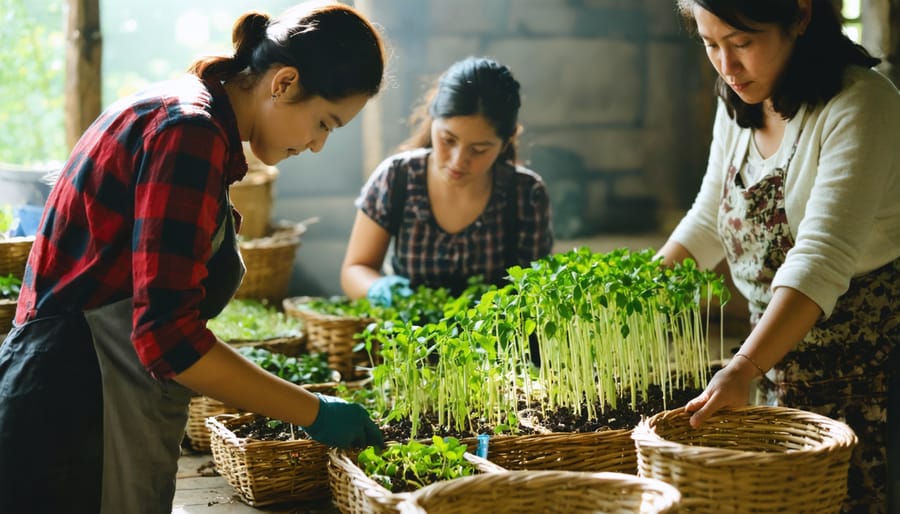
Cooperation Among Co-operatives
Regional Seed Exchange Networks
The Alberta Seed Cooperative Network stands as a shining example of cooperative principles in action. Since 2019, this initiative has connected over 200 farmers across the province, facilitating the exchange of heritage grain varieties and locally adapted vegetable seeds. Members share not only seeds but also valuable growing knowledge through seasonal meetups and online forums.
In Saskatchewan, the Prairie Heritage Seed Bank demonstrates how inter-cooperative collaboration strengthens regional food security. Their seed-saving workshops have trained more than 150 farmers in proper storage techniques, while their seed library has preserved 75 unique varieties indigenous to the Canadian prairies.
These networks exemplify the spirit of cooperation among cooperatives, with larger agricultural co-ops providing storage facilities and smaller community groups managing distribution. The result is a resilient seed system that ensures genetic diversity while fostering meaningful connections between farming communities.
Concern for Community: Local Adaptation and Food Security
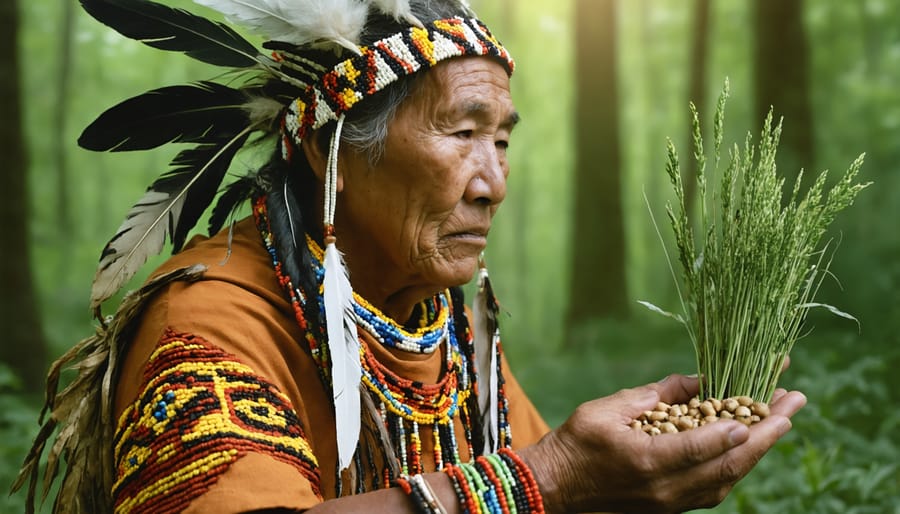
Indigenous Seed Sovereignty
Indigenous seed preservation initiatives across Alberta demonstrate the power of cooperative principles in action. Local farming cooperatives are increasingly partnering with Indigenous communities to protect and propagate traditional seed varieties. These partnerships honor Indigenous farming practices while ensuring genetic diversity in our food systems. The Treaty 7 Seed Collective in southern Alberta exemplifies this approach, bringing together First Nations communities and local farmers to maintain seed libraries and facilitate knowledge exchange. Through these collaborative efforts, traditional varieties of corn, beans, and squash are being preserved for future generations, while strengthening food sovereignty and community resilience. These initiatives also provide educational opportunities for farmers to learn about sustainable growing methods that have been practiced on these lands for centuries.
The seven cooperative principles continue to serve as a vital framework for successful seed preservation initiatives across Alberta and beyond. By embracing these principles, farming communities have created resilient networks that safeguard our agricultural heritage while promoting sustainable practices for future generations. The collaborative approach has proven particularly effective in preserving heritage seed varieties and promoting biodiversity in our local food systems.
Looking ahead, there are abundant opportunities for Canadian farmers to strengthen their seed preservation efforts through cooperative frameworks. From establishing new seed-saving networks to expanding existing seed libraries, the principles of democratic member control and cooperation among cooperatives provide a solid foundation for growth. The success stories from Alberta’s farming communities demonstrate that when we work together, following these time-tested principles, we can achieve both environmental sustainability and economic viability.
As we face increasing challenges in agriculture, from climate change to market pressures, these cooperative principles offer a proven path forward. By continuing to build on this collaborative foundation, we can ensure that our valuable seed heritage remains protected and accessible for generations to come.

